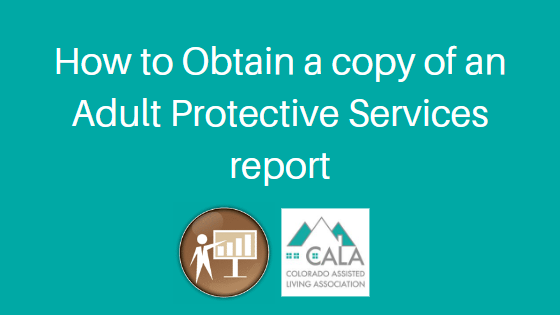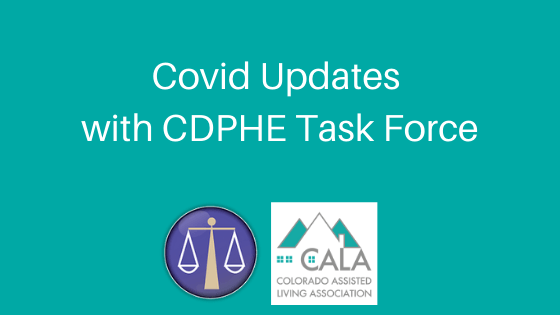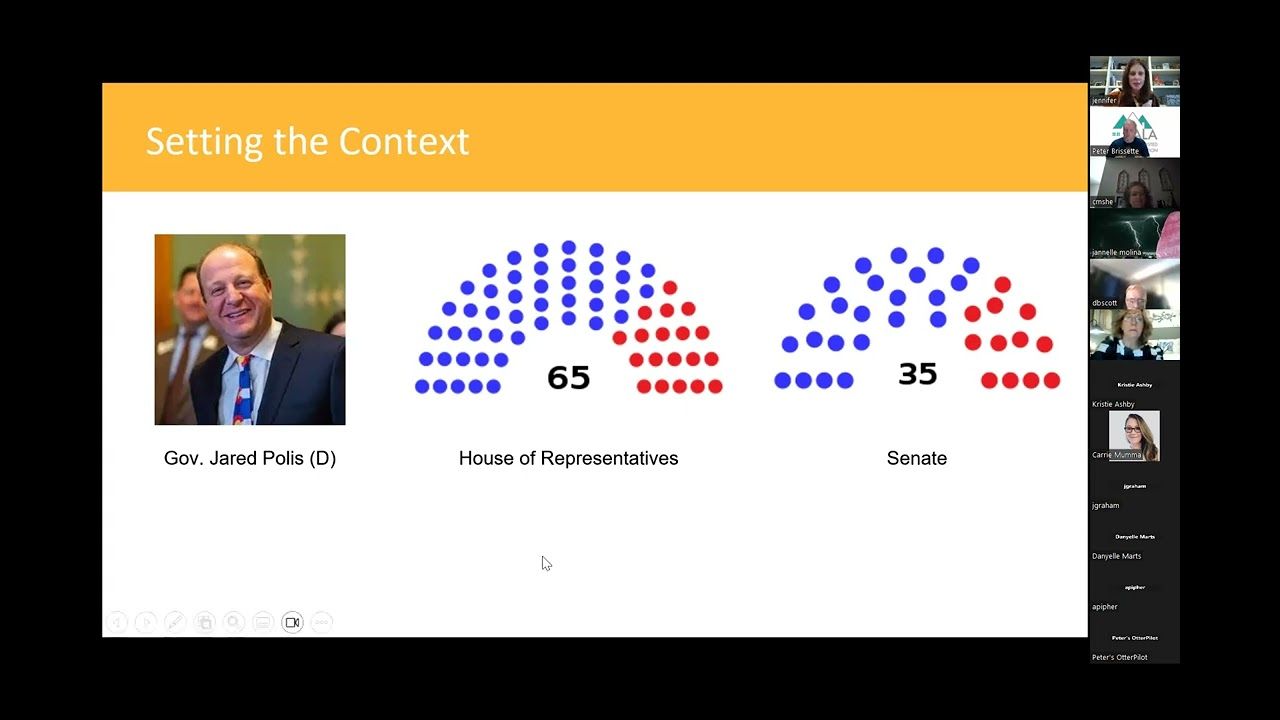How to Obtain a Copy of an Adult Protective Services Report

Assisted living operators are often involved in Adult Protective Services investigations, but unless the facility has been the recipient of APS legal action, the facility may not find out what happened or what APS learned because APS investigations are often considered confidential. The information in the report can be important for families and assisted living operators in managing the care of at-risk adults that may be resident at the facility.
This article looks at two circumstances that permit someone to obtain a copy of an APS investigation without a court order when there are no criminal allegations involved. However, initially, it is important to understand that the allegations that trigger an APS investigation must fall under the statutory description of “mistreatment.”
What is Mistreatment of an At-Risk Adult?
"Mistreatment" means:
(a) Abuse;
(b) Caretaker neglect;
(c) Exploitation;
(d) An act or omission that threatens the health, safety, or welfare of an at-risk adult; or
(e) An act or omission that exposes an at-risk adult to a situation or condition that poses an imminent risk of bodily injury to the at-risk adult.
Why Does Someone Want a Copy of an APS Report?
There are three principal reasons someone may want a copy of an APS investigation report.
Firstly, the target of an APS investigation may want the report to understand the specific allegations made against them. The Colorado State Auditor found that as many as 23% of the cases sampled were poorly documented or failed to follow statutes and regulations. Accordingly, anyone subject to legal actions from the state should request and obtain a copy of the investigation report ASAP.
Secondly, APS may allege mistreatment of an at-risk adult, but the adult may disagree that mistreatment has occurred. It is not unusual for at-risk adults and others to find the protective efforts of government employees to be over-protective, misplaced, or generally unwelcome. Thus, alleged victim may want to review the report and get involved to correct overzealous APS enforcement.
Next, and very importantly, if a person has a loved one who is a victim of mistreatment, they may want to obtain a copy of the report to understand the care needs of the at-risk adult and plan for their future care.
Who may Request a Copy of an APS Report Without a Court Order?
APS investigation reports are confidential. However, there are two situations that allow disclosure of the investigation report. Firstly, the recipient of the substantiated finding of mistreatment chooses to appeal the findings.
5. The disclosure is made for purposes of the appeals process relating to a substantiated case of mistreatment of an at-risk adult pursuant to Section 26-3.1-108(2), C.R.S. . . .
Secondly, the at-risk adult or their guardian may wish the see the report.
7. The disclosure is made to an at-risk adult, or if the at-risk adult is otherwise incompetent at the time of the request, to the guardian or guardian ad litem for the at-risk adult . . .
While access to the investigation report may be allowed, there are some limitations on the information that may be disclosed. The identity of witnesses, personal health information, and the identity of the at-risk adult or other at-risk adults that may have been interviewed may not be disclosed.
In summary, if a person is the recipient of the “substantiated findings” report of APS or they are the at-risk adult, they are entitled to request a copy of the report from the county APS office.
Consult your attorney for help in drafting the request or in helping the County APS officials understand why you may be entitled to receive a copy of the investigation report.
Look for more weekly blog posts on topics of interest to Colorado Assisted Living operators and the Colorado Assisted Living Association. The information herein is intended to be educational and an introduction to the subject matter presented. It is NOT specific legal advice to be relied upon for specific individual circumstances. Contact brian@pinkowskilaw.com or your own legal professional if you would like specific advice on this topic. We welcome topic suggestions!
Write to brian@pinkowskilaw.com if you are curious to learn more about a certain topic impacting assisted living or other group housing concerns.






